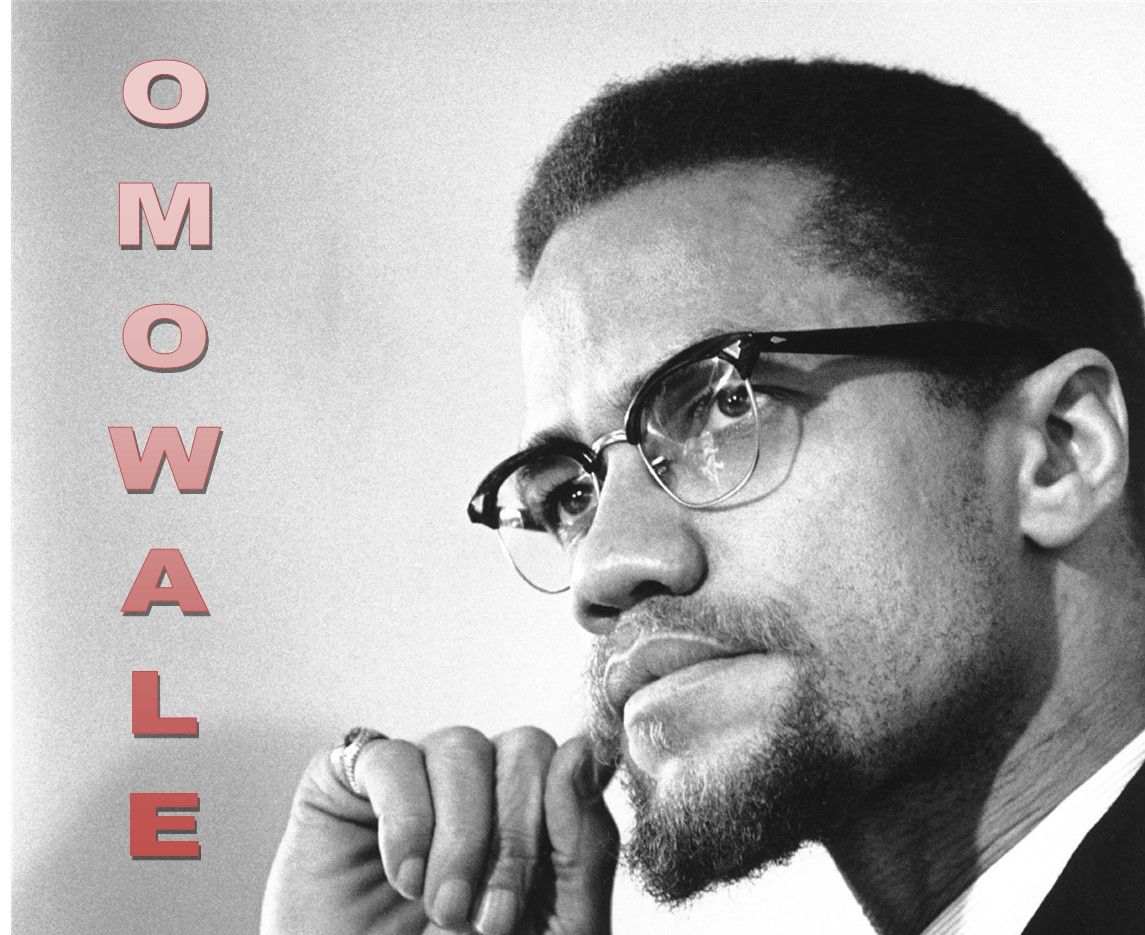Are Afrikan Souls Abandoning the Remembering of Themselves for Sensationalised Media, Likes, Views, Clicks and Cyberspace Algorithms?
- By kwende ukaidi
- •
- 19 Jan, 2022
- •
Remembering the Great Omowale Malcolm X

In honour of the Creator Supreme, Afrikan people brought forth
language and communication to humanity. From the earliest times Afrikan souls considered
their language to be divine and identified it as such. Whether scribed on
papyri, carved into architectural design, spoken or otherwise Afrikan communication
came with vital responsibilities and facilitated the establishment, growth and
development of the greatest and most long-lived civilisations known to the
world. Indeed, the purposeful nature of language passed from each generation to
the next and Afrikans necessarily remembered this important part of themselves with
all the empowering responsibilities that came with it.
With interruption and disruption to the Afrikan life continuum such as the Maafa of recent centuries, alien conceptions of language and communication have been imposed. At a basic level and in many cases, Afrikan names and language have been stripped from the Afrikan. Thus, the Afrikan divine word has come under serious assault with the conduit for communication being this alien tongue or that with a deficit in Afrikans remembering themselves and their own language. Here, then enters the modern notion of foreign mass media.
The great hero Omowale Malcolm X insightfully highlighted the impact such media has had on Afrikan life:
“It’s a crime, the lie that has been told to generations of [Afrikans]... Little innocent [Afrikan] children, born of parents who believed that their race had no history. Little [Afrikan] children seeing, before they could talk, that their parents considered themselves inferior. Innocent [Afrikan] children growing up, living out their lives, dying of old age – and all of their lives ashamed of being [Afrikan]”.
According to a popular mainstream platform the word media is defined as:
“the main means of mass communication (broadcasting, publishing, and the internet) regarded collectively”.
Whilst technologies may change over time, the fundamental importance and responsibilities of Afrikan souls remembering themselves, their language and communication surely remain true. In remembering themselves Afrikan souls can assess whether language and communication facilitates the imperative restoration, growth, development and safeguarding of Afrikan civilisation. Or, whether such means are being misused as a tool of self-destruction by proxy of others that mean the Afrikan ill.
Nowadays, the constructs of social media and cyberspace has been popularised. According to a popular mainstream source social media is made up of:
“websites and applications that enable users to create and share content or to participate in social networking”.
And, cyberspace is defined as:
“the notional environment in which communication over computer networks occurs”.
The ‘notional environment’, which is another way to say that
such an environment is ‘not existing in reality’. The cyberspace construct is
governed by algorithms, which according to the same popular mainstream source
is:
“a process or set of rules to be followed in calculations”.
In this, are susceptible Afrikan souls operating on the basis of relinquishing the memory of themselves in order garnish the presumed benefits of a notional environment? The upright progress of Afrikan souls and whatever tools they may use to reach their people, for betterment, necessary survival or otherwise surely cannot then contaminate the Afrikan into denial of self-remembrance. Void of remembering themselves, the ‘successes’ of the Afrikan can surely then only be pseudo with the would-be benefits haemorrhaged to others that mean the Afrikan ill. Afrikan souls, as a natural norm, have a continual duty and responsibility to themselves in self-knowing (and to safeguard it). The Afrikan person self, the Afrikan harmonious and complementary male-female union, the Afrikan family, the Afrikan community, the Afrikan nation and Afrikan world community naturally require Afrikan souls to remember themselves. To whatever degree the Afrikan engages with social media or not, or with cyberspace or not surely relinquishing the remembering of self is out-of-bounds.
The great hero Omowale Malcolm X with his profound depth of wisdom reminds Afrikans that:
“Of all our studies history is best qualified to reward our research”.
The Universal Royal Afrikan Nation (URAN) is an organ that is rooted in spiritual and cultural fabric for the imperative the mission of global Afrikan ascendancy. Throughout its annual observance calendar cycle URAN energises active knowingness in and from the core spirit levels of Afrikan beingness. To find out more about URAN and its spiritual-cultural mission for liberty and nationhood click here. The exquisite URAN pendant can be obtained online by clicking here.
In his capacity as an Afrikan-centred spiritual cultural practitioner this author is available for further learning in this regard and also for the carrying out of ceremonies such as naming and name reclamation. For details please click here.
Afrikan World Studies programmes are an important forms of study in understanding the Afrikan experience. There are a range of subjects covered on these programmes including History, Creative Production, Psychology and Religion. To find out more about these learning programmes please click here. For the video promo for these learning programmes click here.
The important text: From Ajar to Omowale – The Spiritual & Garveyite Journey of Malcolm X by this author is available to purchase online here. The trailer for this important text can be found online here. This publication provides detail on the life and example of this great hero. You can also visit the institution of Yemanja to pick up a copy.
At nominal cost, also consider acquisition of an a4 laminate poster of articulations by this author when visiting the Yemanja institution to enrol, consult, learn, gather or otherwise.
Also, visit www.u-ran.org for links to Afrikan liberation Love radio programme on Universal Royal Afrikan Radio online.
